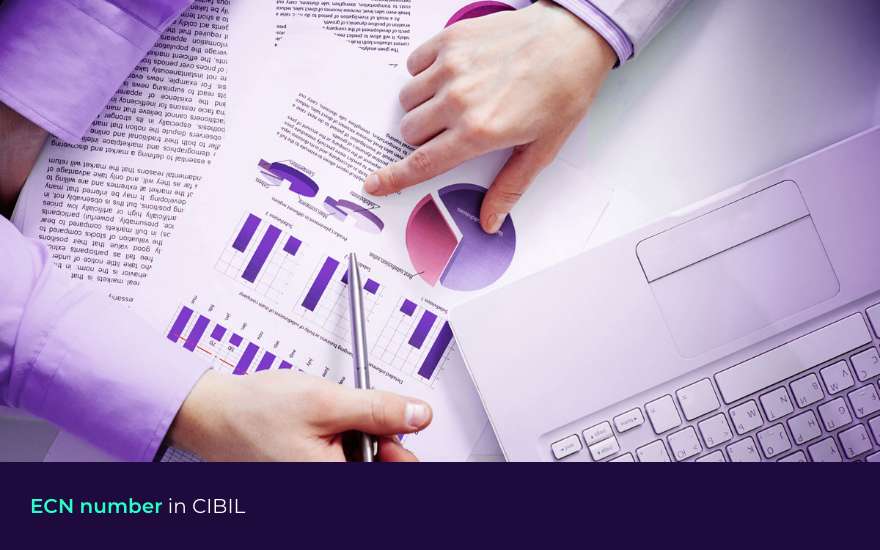
Ecn number
Credit scores matter a lot when you want to borrow money, get a credit card, or even rent a place to live. In India, you might have heard the term “ECN” while learning about credit scores, and it may have left you curious. In this article, we’ll make it easy to understand. We’ll tell you what ECN means and how it connects to your money life in India. Let’s unravel the mystery of ECN and also talk about why credit scores are so important.
ECN Full Form
In the world of credit bureaus and financial evaluations, ECN stands for “Enquiry Control Number.” Think of it as a special code given to every time a lender or financial institution asks for your credit report. This code helps keep everything clear and responsible in the credit assessment process.
So, when a lender looks at your credit report, they get this ECN, which is connected to that specific request. This way, you can see who’s been checking your credit and when. It’s a critical part of India’s credit system, ensuring that everything is honest and in order, keeping the credit reporting system reliable.
The Importance of Credit Scores
Before we explore ECN in more detail, it’s essential to grasp why credit scores are significant in India. A credit score is a number that tells how trustworthy you are when it comes to managing money. In India, credit scores are usually provided by credit bureaus, and one of the well-known ones is CIBIL (Credit Information Bureau India Limited).
Lenders and banks pay close attention to your credit score to judge if you’re good at handling money. The higher your score, the more they see you as someone who’s not risky to lend money to. This has some great perks, like lower interest rates, higher credit limits, and quicker loan approvals. So, having a good credit score is super important for your financial success.
Best CIBIL Score
In India, people often talk about the aim of having the “best CIBIL score” when it comes to credit scores. The CIBIL score, which can range from 300 to 900, is one of the most widely used systems for rating credit in the country. A higher CIBIL score is generally thought of as a good thing.
To achieve the best CIBIL score, you need to have a strong history of handling your money well. This means paying your bills on time, not missing loan payments, and keeping your credit card use reasonable. When you have a high CIBIL score, lenders find you more appealing, and you can get loans and credit cards on better terms.
CIBIL Score Calculation
Knowing how your CIBIL score is figured out can assist you in making smart choices to boost it. The calculation includes various factors, such as:
Payment History:
One of the most vital factors, making up roughly 35% of your CIBIL score, is how well you’ve been handling your credit payments. This factor reflects how regularly you’ve been making these payments. Paying on time has a positive effect on your score, while being late or missing payments can significantly lower it.
Credit Utilization:
This makes up approximately 30% of your score. It tells you how much of your available credit limit you’re currently using. To keep a good score, it’s recommended to use less than 30% of your credit limit.
Length of Credit History:
This factor looks at how long you’ve had your credit accounts. Having a longer history of managing credit responsibly is good for your score.
Types of Credit:
Diversifying your credit types, like having both credit cards and loans, can boost your score in a positive way. As for recent credit inquiries, whenever a lender checks your credit, it creates a note on your report. If you have several inquiries in a short time, it can cause a temporary drop in your score.
ECN and Your CIBIL Score
The Enquiry Control Number (ECN) is a tag attached to every request made to see your credit report. It helps keep tabs on when and who has looked at your credit history. While these checks are necessary when you want to borrow money or get a credit card, having too many of them in a short time can temporarily hurt your CIBIL score.
If you are looking for a loan or a credit card, it’s normal for different lenders to check your credit report to figure out if you qualify. However, these checks can leave a little mark on your report, causing a short-term dip in your score. To manage this, it’s smart to do your loan shopping within a brief timeframe, usually 14 to 45 days, as many credit scoring models treat multiple inquiries for the same type of credit as just one.
How to Raise a Dispute Regarding ECN
Sometimes, you might spot an ECN that looks unfamiliar, or you think a request was made on your credit report without your permission. When this happens, you have the right to bring up a concern or dispute. Here’s the procedure:
Obtain a Copy of Your Credit Report: Begin by getting a copy of your credit report from the relevant credit bureau, like CIBIL. You can easily do this online by visiting their official website.
Identify the Erroneous Inquiry: Thoroughly review your credit report, and pinpoint the exact inquiry you want to challenge. Make a note of the ECN connected to it.
Contact the Credit Bureau: Contact the credit bureau that created your report. They usually have a process for resolving disputes, which often includes filling out a dispute form. Make sure you’re ready to provide any necessary supporting documents.
Investigation: The credit bureau will look into the dispute and get in touch with the lender who requested the inquiry. If it turns out that the inquiry was a mistake or done without your approval, they will take it off your credit report, and your score will be corrected accordingly.
Monitor Your Credit: Once the dispute has been settled, keep an eye on your credit report to make sure the wrong inquiry has been taken off, and your score has been fixed.
Conclusion
Understanding ECN’s full form and its role in credit scores is crucial for anyone in India working toward a solid financial future. Maintaining a good credit score, understanding CIBIL score factors, and managing inquiries and disputes can enhance your financial well-being. Whether you aim for the top CIBIL score or want to be a more informed credit user, mastering terms like ECN is a great beginning. In a complex credit world, the right knowledge and proactive financial management can lead to a prosperous financial future.







